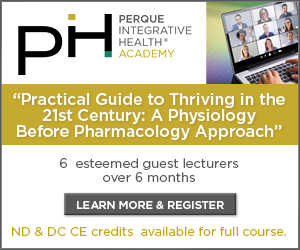There’s no way ’round it: if you want to practice medicine effectively and successfully, you need to face the “business” aspects of what you do.
Whether you’re planning to stay in a traditional insurance setting, considering some form of direct-pay, or you’ve already made a move to an alternative practice model, the economy is likely putting new pressures on you, and your patients. Yet, the demand for “patient-centric” care has never been higher.
The situation is challenging, but not hopeless. In fact, public interest in holistic and functional medicine is growing, as are many practices that offer this kind of care.
Holistic Primary Care’s fourth annual Heal Thy Practice: Transforming Patient Care conference, Nov 9-11, 2012, is primed to help you meet today’s challenges with practical, field-ready strategies for implementing holistic modalities, strengthening your fiscal health, and delivering a genuine healing experience. Here’s a preview:
Healing Heart, Entrepreneurial Mind
If you’re going to run a successful, modern, non-corporate practice, you need to start thinking creatively about all aspects of your practice, not just the “medicine” part, says Dr. Philippa Kennealy, aka “The Entrepreneurial MD”.
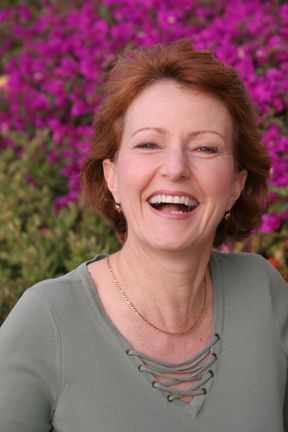 Herself a board-certified family physician, Dr. Kennealy has vast experience in diverse practice settings. Her main passion now is helping other clinicians develop their business know-how. Here are Dr. Kennealy’s essentials for freeing yourself—or staying free—of “McMedicine:”
Herself a board-certified family physician, Dr. Kennealy has vast experience in diverse practice settings. Her main passion now is helping other clinicians develop their business know-how. Here are Dr. Kennealy’s essentials for freeing yourself—or staying free—of “McMedicine:”
Shift Your Perspective & Embrace Business Thinking: Though you trained to be a clinician, not a bean-counter, you need to learn business basics: leadership; understanding your finances; systemizing office processes; negotiating good contracts; hiring and managing for high performance. Clinicians’ unwillingness to deal with “business” is a big part of how the corporate guys took over in the first place. Guess what? It isn’t…ahem…brain surgery. It can even be fun, if you approach it right.
Engage in Acts of Radical Creativity: Running your own show gives you much creative latitude. How you assemble your team and convey your vision, what technology you select, how you actually deliver care — all of this is open to being designed “de novo” by you. That’s the real meaning of being an entrepreneur, and it can free you to be the kind of healer you really want to be.
From-the-Heart Marketing: Unless you’re the only practitioner in a small town, you undoubtedly face competition. How do you want to be known? Who do you want to attract? How will you woo them? Who do you really intend to be, as a physician, healer, and community leader? Your answers form the basis of your marketing plan. “It’s not about trying to be something you’re not. It’s about creatively telling the world who you are and what you have to offer.”
Myths of Time Management
“None of us can add hours to the clock, or actually “manage time.” You can only manage what you can control—and that’s YOU! Not time, but yourself. It’s true that time flies. The good news is, you’re the pilot!” says Miriam Zacharias, PhD, a holistic nutritionist and practice development consultant.
“My clients constantly say, “I don’t have enough hours to get everything done!” To that I say…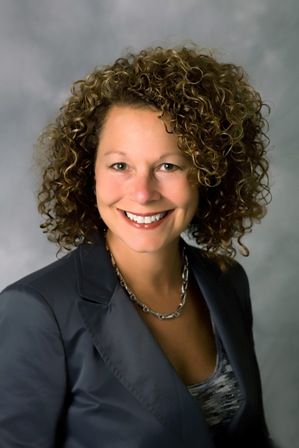 rubbish!” said Dr. Zacharias, co-creator of Z School Internet Marketing Mastery for Wellness Professionals. All it takes is a few simple shifts to immediately free up more time. Here are a few tips:
rubbish!” said Dr. Zacharias, co-creator of Z School Internet Marketing Mastery for Wellness Professionals. All it takes is a few simple shifts to immediately free up more time. Here are a few tips:
Banish Multitasking: Forget everything you’ve read; you cannot do two things at once. The mechanism of attention is selection: it’s either this or it’s that. “My favorite desk accessory is a kitchen timer. I set it for 50-minute increments and then work on one specific thing with no interruptions: no calls, no email, no, “Hey, can I run something past you?” interruptions. Do this a couple of times a day, and you’ll be amazed at how much more you get done!” Dr. Zacharias said.
Project Leadership: Are you a person who practices medicine, or are you a medical leader? This distinction is critical. If you don’t assume a leadership role, others won’t treat you as a leader. Part of this involves communicating to staff that minor problems and questions must either be resolved by them, or brought to you at a time and in a manner that you specify. “Set clear boundaries and you’ll be surprised at how many small matters get “magically” resolved without your involvement at all. This frees your time for the important stuff.”
Do What Matters MOST: When you run a practice there are lots of things you could do, and many things you’d like to do. The only thing that matters is what you must do. Discerning this takes clarity & intention. Practice development must be a top priority. If you set aside management tasks, or push off writing a chapter of your book yet again, you may find yourself getting nowhere fast. Planning and prioritizing what must be done each day – and building an impenetrable boundary around that plan – is essential.
Meeting Unmet Clinical Needs
There are many people with serious conditions for which conventional medicine has little to offer. Likewise, many people are seeking—and are willing to pay for– preventive services not offered by most doctors. If you learn how to take care of patients with unmet needs, you’ll have a solid base for your holistic practice.
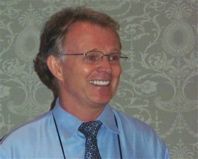 Conference chairman Steven Masley, MD, will share a new approach to cardiovascular risk assessment that he’s implemented at his own Masley Optimal Health Center, St. Petersburg, FL. “It involves measuring heart power with fitness testing. The 3 most powerful predictors of arterial plaque growth and cardiac events may be 1-minute heart rate recovery, MET (metabolic equivalent) level achieved with exercise, and blood pressure response to exercise.”
Conference chairman Steven Masley, MD, will share a new approach to cardiovascular risk assessment that he’s implemented at his own Masley Optimal Health Center, St. Petersburg, FL. “It involves measuring heart power with fitness testing. The 3 most powerful predictors of arterial plaque growth and cardiac events may be 1-minute heart rate recovery, MET (metabolic equivalent) level achieved with exercise, and blood pressure response to exercise.”
With his colleague, Dr. Corey Evans, he’ll describe how exercise testing opens new options for CVD prevention, cultivating patient relationships, and generating new revenue. He’ll also share data from his soon-to-be-published research, identify foods and supplements that reduce plaque growth and event risk, and clarify how to get paid well for nutrition counseling.
One of the highlights of Heal Thy Practice 2011 was Dr. Aristo Vojdani’s luncheon session on identifying gluten reactivity. Dr. Vojdani will be back this year, with a new presentation entitled, “From Leaky Gut to Autoimmunity: Next Generation Assessment Tools.”
Patients with chronic autoimmune diseases often bounce from doctor to doctor, seeking relief. Dr. Vojdani, a pioneer in immunology and chief scientific advisor for Cyrex Laboratories , will describe new tests that enable you to be the physician they’re looking for: the one who can get to the bottom of the problems.
These new assays improve your ability to evaluate intestinal barrier permeability, and identify 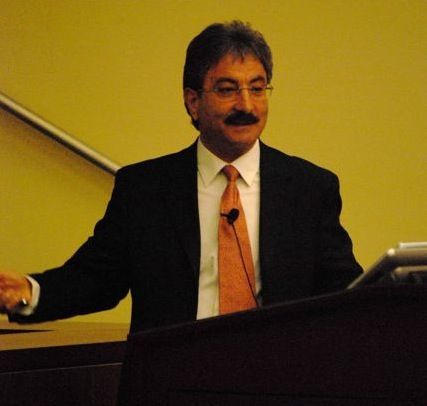 trigger antigens like lipopolysaccharides, gluten and dairy proteins. Through case studies and common clinical scenarios, Dr. Vojdani will show how to apply these tools to identify “leaky gut,” which plays a role in the pathogenesis of many autoimmune disorders. He’ll pay particular attention to patients with known autoimmune diseases, underscoring how to address their gut issues—even if the primary diagnosis does not seem GI-related.
trigger antigens like lipopolysaccharides, gluten and dairy proteins. Through case studies and common clinical scenarios, Dr. Vojdani will show how to apply these tools to identify “leaky gut,” which plays a role in the pathogenesis of many autoimmune disorders. He’ll pay particular attention to patients with known autoimmune diseases, underscoring how to address their gut issues—even if the primary diagnosis does not seem GI-related.
Mindful Eating & Successful Lifestyle Change
“Despite an unprecedented focus on what to eat and how much to exercise, our patients face a host of lifestyle-related diseases,” says Michelle May, MD, a family physician and recovering “yo-yo” dieter, who has developed an innovatve patient education program called “Am I Hungry?“.
“Each day they make hundreds of unconscious decisions about eating and movement that contradict their stated desire to make healthier choices. As a result, many struggle with a pattern that I call the “eat-repent-repeat cycle.”
 Described as, “a voice of reason in a diet-crazed world,” Dr. May will outline a reliable method for helping patients break this cycle, through greater awareness of why, when, what, how, and how much they eat, and where they invest their energy. “The Mindful Eating Cycle” helps people recognize and take action at each decision point.” (For insight into Dr. May’s approach, download chapter one of, Eat What You Love, Love What You Eat).
Described as, “a voice of reason in a diet-crazed world,” Dr. May will outline a reliable method for helping patients break this cycle, through greater awareness of why, when, what, how, and how much they eat, and where they invest their energy. “The Mindful Eating Cycle” helps people recognize and take action at each decision point.” (For insight into Dr. May’s approach, download chapter one of, Eat What You Love, Love What You Eat).
Different Paths to Better Practice
There’s no one “right” practice model to support holistic and functional medicine. The optimal model for you is the one that gives you the time and context to do your best work, while making your services available to the patients you’re most able to help. Heal Thy Practice is a forum to explore a range of potentially effective models.
For some, the ideal context is direct-pay practice. In a breakout session entitled, “A Path to Freedom,” Dr. William (BJ) Lawson will discus how to build a “Direct Primary Care” practice using a membership model, within the confines of a traditional fee for service environment. He’ll answer key questions likely to be on the minds of any doctor considering direct-pay: Is it legal? Who will purchase the memberships? What can I expect in the first 12 months? What technology do I need to make this work?
“We know, from experience that this model can and does work in the real world,” said Dr. Lawson,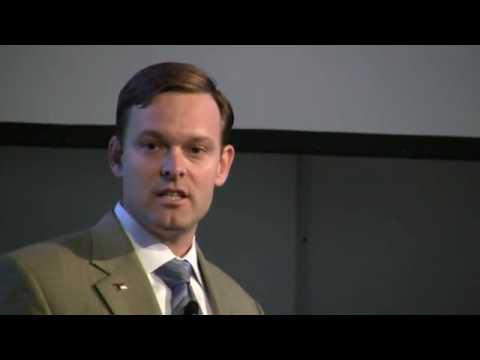 co-founder of Physician Care Direct, a North Carolina company that helps clinicians nationwide implement and manage direct-pay practices at prices ordinary people can afford. “In less than six months, two of our practices have added more than 100 memberships. This translates into more than $50,000 a year in recurring revenue with little associated collection cost,” he said.
co-founder of Physician Care Direct, a North Carolina company that helps clinicians nationwide implement and manage direct-pay practices at prices ordinary people can afford. “In less than six months, two of our practices have added more than 100 memberships. This translates into more than $50,000 a year in recurring revenue with little associated collection cost,” he said.
Other clinicians have found ways to make holistic medicine work within insurance. Drs. Bruce and Molly Roberts will discuss an innovative insurance-based model pioneered by the Institute for Health and Healing, where they both work. As “Integrative Specialists,” they’re able to successfully provide a broad scope of integrative health services within a large multispecialty practice.
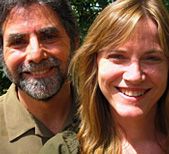 “We all know that an integrative approach–one that addresses underlying causes rather than just treating symptoms–is the most cost effective health care in the long run,” Dr. Bruce told Holistic Primary Care. “In order to provide these services, most Integrative practitioners go outside the insurance system. But this puts them out of reach for a large number of people.” The Integrative Specialist model creates a way for patients who are dependent on insurance to obtain good holistic care.
“We all know that an integrative approach–one that addresses underlying causes rather than just treating symptoms–is the most cost effective health care in the long run,” Dr. Bruce told Holistic Primary Care. “In order to provide these services, most Integrative practitioners go outside the insurance system. But this puts them out of reach for a large number of people.” The Integrative Specialist model creates a way for patients who are dependent on insurance to obtain good holistic care.
As part of Heal Thy Practice’s now traditional “Sunday Brunch” session, Bruce & Molly will also offer an opportunity to go beyond practice development, to recover the “healer within”—that original spark that inspired you to become a healer. It’s the most vital element for your own health and happiness, yet contact with it is so easily lost amid the demands of modern practice. In a safe, nurturing space, the Roberts’ will guide you through meditations and exercises drawn from their years of experience helping clinicians rediscover their passions for healing.
Lessons from Clinics Large & Small
While it may seem like health care’s in a tailspin, the reality is that a new model of medicine is evolving—one based in systems biology and integrative thinking, says Mimi Guarneri, MD, founding director of the Scripps Center for Integrative Medicine. Signs of positive change are everywhere.
Heal Thy Practice will offer a rare opportunity to see the inner workings of one of the nation’s 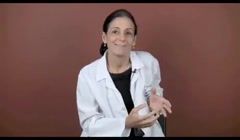 flagship integrative clinics, as Dr. Guarneri shares her lessons learned at the helm of the Scripps center. In her keynote talk, she’ll describe the nuts & bolts of the center’s economic model and how she’s solved the challenges of integrating conventional and holistic services.
flagship integrative clinics, as Dr. Guarneri shares her lessons learned at the helm of the Scripps center. In her keynote talk, she’ll describe the nuts & bolts of the center’s economic model and how she’s solved the challenges of integrating conventional and holistic services.
Bethany Hays, MD, whose True North Health Center in Portland. ME (www.truenorthhealthcenter.org), is often cited as an epitome of effective, integrative care, will describe the “Circle Process,” a communication and decision-making strategy that involves the entire staff, and guides all aspects of the clinic.
“Instead of a top-down, command-and-control approach, the intelligence of the circle guides decision-making at True North, which is now in its 10th year. I believe the Circle Process has a lot to do with why we’re still around,” said Dr. Hays. She’ll describe how the process works, how it keeps everyone aligned with patients’ best interests, and how it has helped identify and solve problems at the clinic that might have gone unmanaged in a “traditional” model.
 If it’s true that one can judge the tree by it’s fruit, then Heal Thy Practice has reason to take pride in the success of Dr. Jeffrey Gladd. An attendee at the first Heal Thy Practice in 2009, Dr. Gladd had reached his limit with the red tape of working within his local hospital system. Drawing on what he learned at the conference, Dr. Gladd launched his own “high-tech, high-touch,” direct-pay integrative practice that just celebrated its second successful year. That’s no small feat for a young doctor in Ft. Wayne, Indiana!
If it’s true that one can judge the tree by it’s fruit, then Heal Thy Practice has reason to take pride in the success of Dr. Jeffrey Gladd. An attendee at the first Heal Thy Practice in 2009, Dr. Gladd had reached his limit with the red tape of working within his local hospital system. Drawing on what he learned at the conference, Dr. Gladd launched his own “high-tech, high-touch,” direct-pay integrative practice that just celebrated its second successful year. That’s no small feat for a young doctor in Ft. Wayne, Indiana!
Dr. Gladd will describe his personal and professional transformation, a process that has led him to the forefront of physician entrepreneurship, patient-centered technology, and holistic medicine. “I’m excited to return to Heal Thy Practice to help inspire the next generation of doctors to get off the hamster wheel.”
In addition to his plenary, Dr. Gladd will also lead a breakout workshop, sponsored by HelloHealth, that details the company’s innovative EMR platform that, “rather than adding significant overhead, costs nothing and actually generates revenue and increases connectivity with patients.”
Finding New Revenue
Holistic Primary Care’s 2010 physicians survey showed that roughly 13% of primary care doctors—including many who consider themselves “mainstream”—are now dispensing nutraceuticals. That will continue to grow with rising consumer demand for nutrition-based care, and continued downward pressure on physician reimbursement.
Done right, office-based dispensing can bring much-needed revenue to struggling practices, and much-sought convenience for patients. But the learning curve can be steep. Fortunately, there are effective systems that make it a lot easier to provide patients with top-quality supplements, herbal medicines and homeopathic remedies.
In a breakout track sponsored by Emerson Ecologics, Jaclyn Chasse, ND, of the Northeast Center 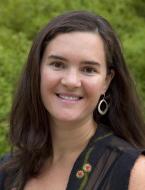 for Holistic Medicine, Bedford, NH, will highlight eLink, Emerson’s customizable online service that connects your patients to products from over 250 of the world’s highest-quality brands. The system gives you a choice of generating income for the practice or, if you prefer not to take a profit, simply offering patients access to your recommended products at a discount. Either way, eLink lets you provide high-value nutrition-based care with little administrative hassle.
for Holistic Medicine, Bedford, NH, will highlight eLink, Emerson’s customizable online service that connects your patients to products from over 250 of the world’s highest-quality brands. The system gives you a choice of generating income for the practice or, if you prefer not to take a profit, simply offering patients access to your recommended products at a discount. Either way, eLink lets you provide high-value nutrition-based care with little administrative hassle.
Dr. Chasse will also outline Emerson’s other practice support tools including access to brand quality information, peer-to-peer advice, an advanced search tool covering over 12,000 supplements, and articles from leading researchers.
There’s much more on tap at Heal Thy Practice 2012: Alan Dumoff, JD, our “lawyer in the family” will update us on important legal and regulatory trends, and outline the “Top Ten Medicolegal Mistakes Integrative Practitioners Make…and How to Avoid Them.”
Marketing maven, James Maskell of Revive Communications, will teach all things internet, with emphasis on making best use of web-based practice support tools. Practice development consultant, Tim Brolus will identify the three “essentials” for a successful practice, the three biggest stumbling blocks that trip holistic practitioners, and effective strategies for overcoming them.
Join us in Long Beach for a transformative and empowering weekend of top-notch presentations, excellent healthy food and peer support from like-minded colleagues across the country!







